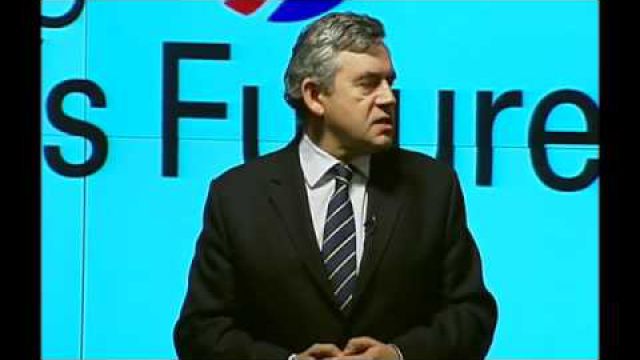UK's Brown wary of reversing stimulus too soon
Mon Oct 12, 2009
* Brown says will support BoE when time comes to halt QE
* PM says reversing stimulus would put recovery at risk
* Gov't outline asset sales to help cut budget deficit (Adds report UK looking at outsourcing some functions, paragraphs 6-8)
By Matt Falloon
LONDON, Oct 12 (Reuters) - British Prime Minister Gordon Brown said on Monday that the opposition Conservative Party's plans to reverse the huge monetary and fiscal support thrown into the economy would derail the recovery.
With an election expected next May, both Brown's Labour Party and the Conservatives are trying to show they have the most credible plans to guide the economy and cut the burgeoning budget deficit.
What I am warning about is those people who believe that you can remove the monetary and fiscal stimulus overnight ... withdraw that stimulus now in its entirety and you'll have a problem, Brown told a business audience.
A warning last week from Conservative leader David Cameron that the Bank of England's policy of pumping money into the economy should stop soon to avert an inflation spike surprised analysts as it is rare for politicians to go so far in commenting on the policies of the independent central bank.
The Conservatives, leading Labour in opinion polls by a large margin, fear that ballooning debt is undermining confidence in the economy and is putting Britain's top-notch credit rating at risk.
Sky News reported late on Monday that the government was considering privatising information technology and human resources functions in government departments as a way of reducing the public sector deficit.
It said an estimated 30,000 posts could be shifted into new public service companies that could then be floated on the stock market.
Asked for comment, a government source said outsourcing or sharing services between departments were options the government was exploring.
Brown said he expected market appetite for government bonds to remain strong and confirmed asset sales of 16 billion pounds ($25.38 billion) over the next two years as part of measures to halve the budget deficit over the next four years.
But analysts said markets wanted to see more longer-term moves to tackle record government borrowing.
Britain's economy is slowly emerging from its steepest recession in decades as a 175-billion-pound scheme from the BoE to purchase assets -- mainly government debt -- and extensive government support measures start to feed through.
Analysts believe the BoE is close to calling a halt to its quantitative easing (QE) efforts, but opinion is divided over when it might begin to actually remove the stimulus, given strong headwinds to recovery. Continued...

